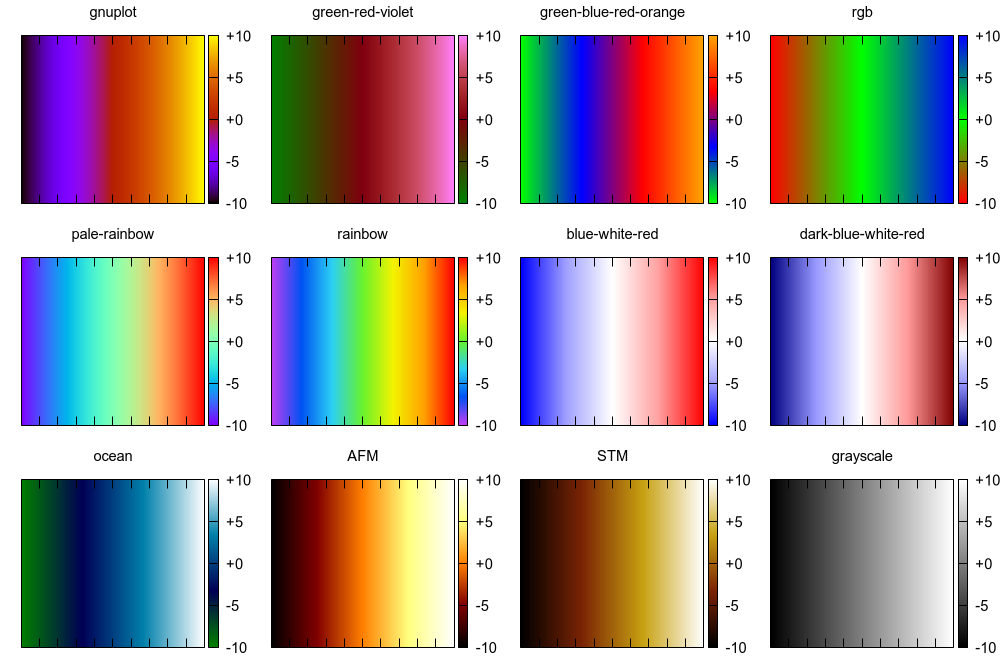TABLE OF CONTENTS
::pwtk::heatmap
SYNOPSIS
proc ::pwtk::heatmap {args} {
USAGE
::pwtk::heatmap ?SPLOT-OPTIONS? ?PLOTTING-OPTIONS? DATAFN where DATAFN is either a datafile or a function to plot. For SPLOT-OPTIONS, see ::pwtk::splot. For PLOTTING-OPTIONS, see ::pwtk::plot.
SPLOT OPTIONS
See ::pwtk::splot (N.B. the -type option is ignored).
PLOTTING OPTIONS
See ::pwtk::plot
ARGUMENT
- DATAFN --- datafile or function to plot
PURPOSE
A fast way of making a heatmap from the x, y, f(x,y) tabulated data. For a more elaborate and configurable 3D plotting, use the ::pwtk::gp::splot object-oriented interface instead.
If the datafile was created with the ::pwtk::write command, it is closed prior to being plotted.
The PWTK's predefined color palettes can be accessed with the -pal option. To invert a palette, use "-pal {PALETTE negative}", where PALETTE is one of:

Note that for PALETTE only a substring that uniquely identifies it is required. For example, "-pal pa" selects the "pale-rainbow" palette.
RETURN VALUE
- the name of created image (for file terminals)
- an empty string (for other terminals)
SOURCE
variable write_fid # parse args ::pwtk::ignoredOpts_ -type $args set arguments "DATAFN" splotParseOpt_ # plot's name if { $opt(out) ne {} } { set head [headname $opt(out) .$opt(t)] } else { if { [file exists $args] } { set head heatmap-[file tail [file rootname $args]] } else { set id [incr ::pwtk::gp::heatmap_id] set head heatmap-$id } } # datafile or function ? if { [file exists $args] } { # lastarg is a file finish $args set datafn [squote $args] } else { # lastarg is a function set datafn $args } # specific-options post-processing set gp [splotCreateConfigure_ map {l nosurf} opt $head] set with [concat w $opt(w) $opt(clw)] # plot if { $opt(contour) } { $gp plot [concat $datafn $opt(u), $datafn $opt(u) $with] } else { $gp plot [concat $datafn $opt(u)] } return [::pwtk::gp::execDisplay_ $gp opt] }